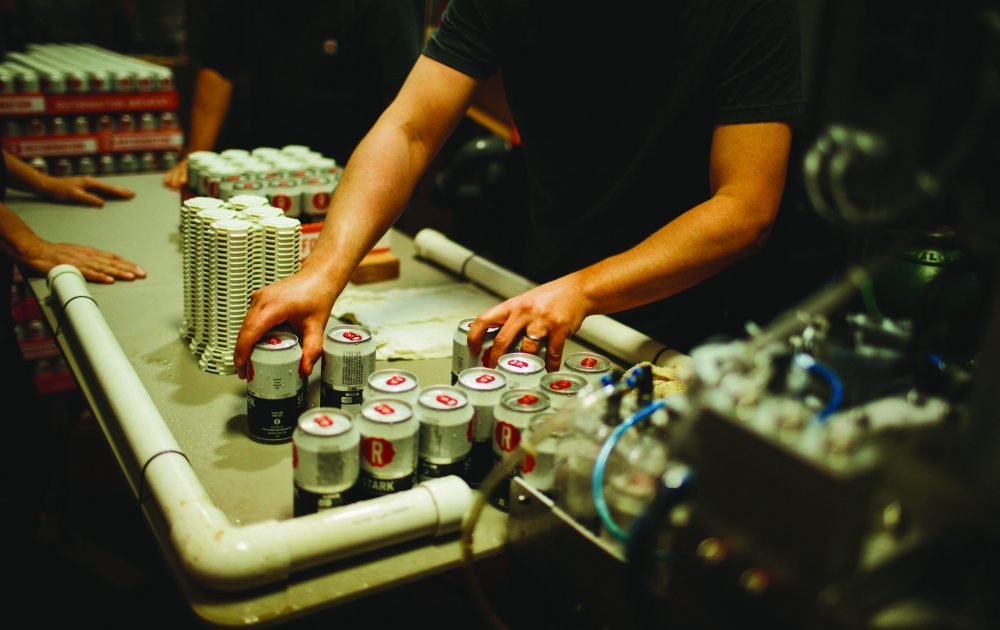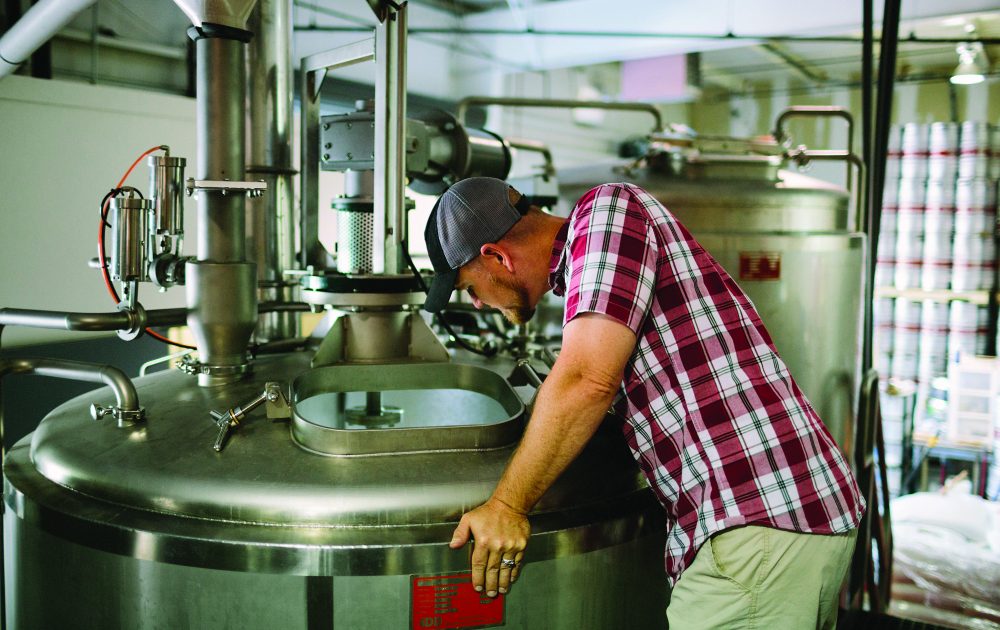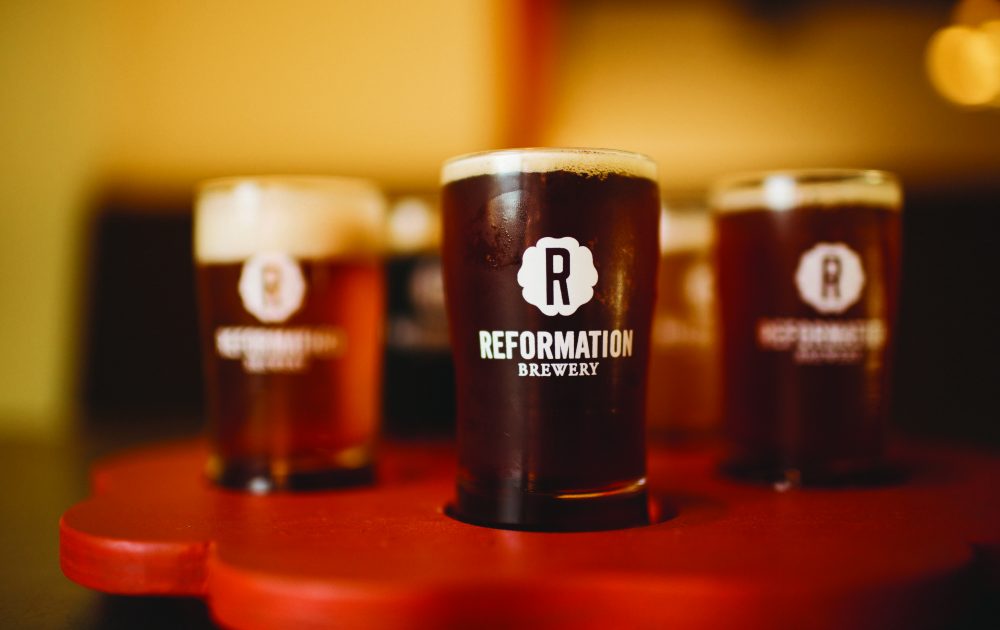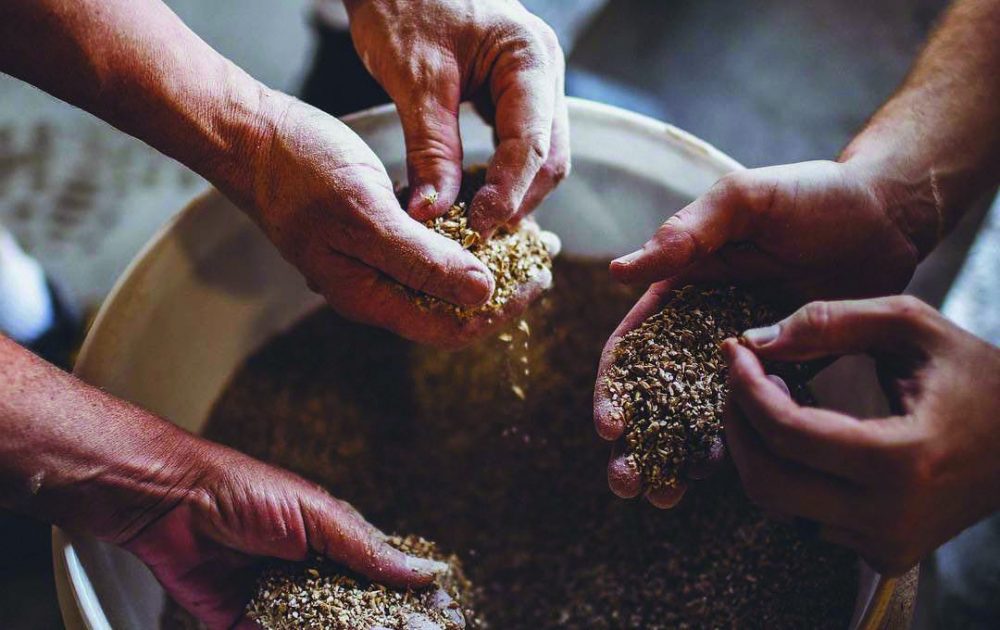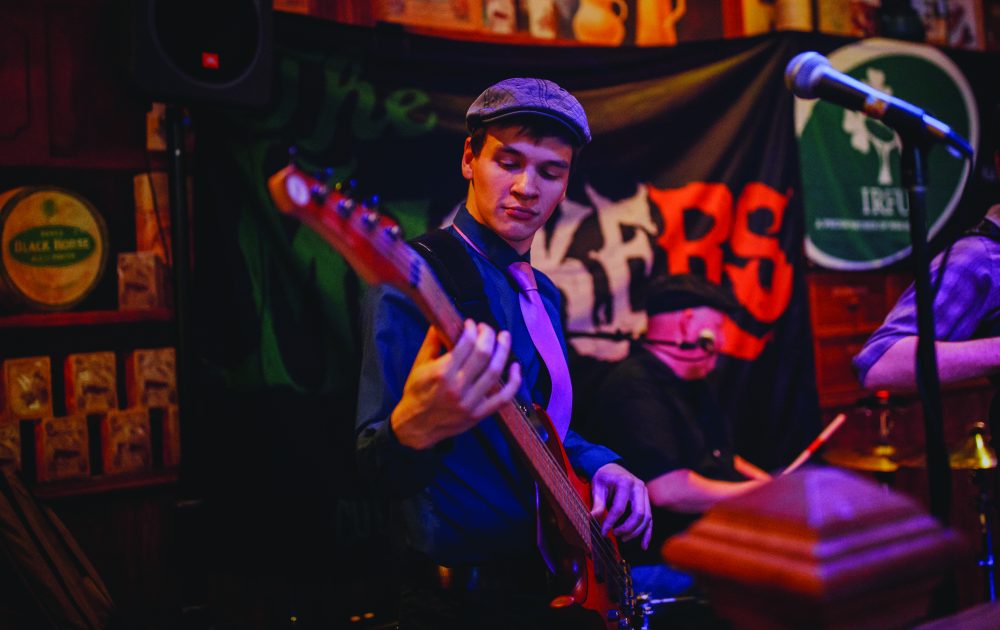
PHOTOGRAPHY Contributed by Reformation
Any self-respecting Protestant knows the connotations of a word like reformation. No mere word, these four syllables stand as an icon of change and of the power of community to shift ideas. It takes something special to translate that kind of major theological shift to brewing beer. The bigger feat is creating a convincing authenticity in a culture blasting us with branding.
That is exactly what two guys, a pastor and a pilot, attempted when they opened Reformation Brewery in Woodstock, Georgia. As with any ideological shift, the fully functioning brewery did not spring unbidden from the earthy soil of Woodstock, Georgia. These things take time.
A handful of years ago, Spencer Nix and Nick Downs found themselves burdened with too much handcrafted homebrew on their hands. The two had been sampling bottle after bottle Downs brought back from his flights to Belgium, eventually inspiring them to try their hand at making their own. Once the pair tapped their brews, they talked faith, family and beer over their concoctions. Friends and family could not deplete their stock, and strangers started arriving from neighboring states in order to taste Woodstock’s heralded ales.
With the idea to “set beer free” like Martin Luther had set free the written words of the Bible, the pair have created more than an impressive line-up of ales. Four years ago, the brewery took over its current space, which houses the Keeping Room and an operational brewhouse. Inside, with the low hum of cooling equipment and the beep-beep-beep of forklifts as a soundtrack, Hannah Roberts, brand ambassador, gives a tour.
She’s dressed in skinny jeans and flannel, a ballcap sits backward on her head and her hands gesture toward the Keeping Room, dotted with tall wooden tables and backed by a long, sleek bar of tantalizing taps. In the late afternoon, the space is busy with activity, if not patrons, who will arrive shortly to fill growlers and grab cans for weekend plans. A tower of barrels stacked to the ceiling pulls double duty as both rustic decor and incubators for the newest craft brew trend, barrel-aged beers.
There’s a method to the activity, and it begins with the founders’ reformational roots. Roberts says there can be an exclusivity to current beer brewing and its aficionados, but Reformation rejects the idea that only the few can enter the inner sanctum of beer enjoyment. The underlying principle of the beer reformation is acceptance, but this ideal is married to a host of others, including humility and humor. “We don’t want anyone to feel like they can’t appreciate good beer. We don’t want to keep people out,” Roberts says. Roberts and the serving staff are approachable and conversational. They carry the confidence of people secure in their own knowledge and passion, and it is utterly convincing.
We are used to hearing the hard sell, used to slick websites and complete brand stories that tell us how we’ll be better, smarter and cooler with the addition of whatever product in our lives. It can be easy to discount a company’s mission when we’ve waded through so many online reviews only to find that the handsomely crafted message doesn’t translate to real life experience. Reformation Brewing presents all the bells and whistles of a carefully-curated presence, and manages to exist in the real world exactly as advertised.
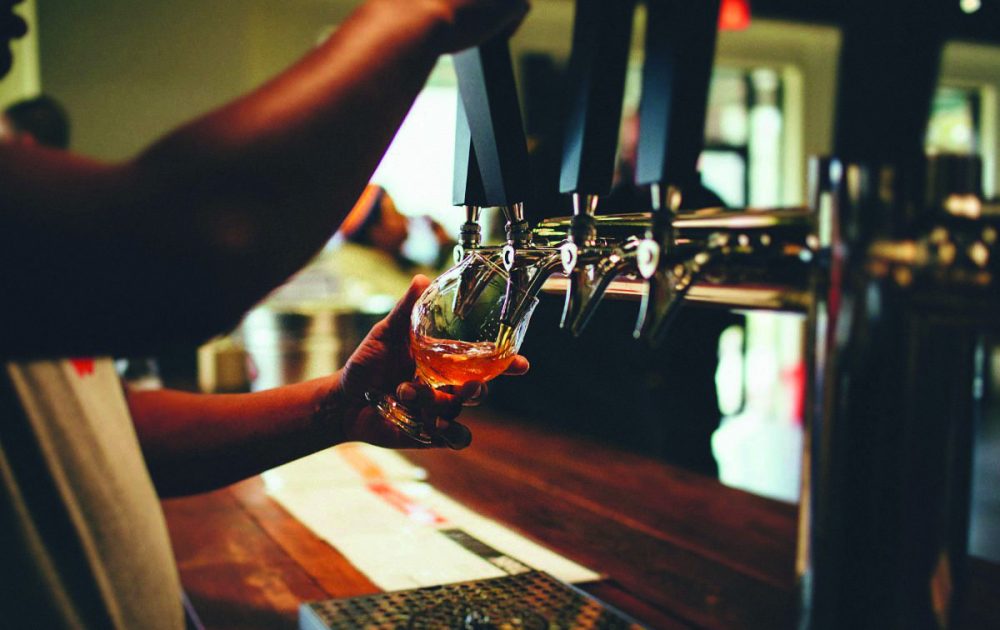
When Roberts shows off the brewing area, she uses a flurry of words and asks for clarification from any one of the men scurrying about, examining numbers, checking charts, adding ingredients. Each one stops to answer her queries, and usually adds more. One guy explains how different yeasts create different beers, with a lager being bottom fermented. Another describes how the base grain is a starting point, but that the additional grains create different flavors. Roberts compares it to vintners this way: “With wine, the vineyard is the story. With beer, the story is in the hands of the brewers.” She means that the type of grape dictates the kind of wine, whereas with beer, the story is totally in the hands of the beer maker.
She says the Reformation team bounces ideas off each other, and many of their best ideas come from conversations with customers. In February, they released a pinot noir barrel-aged double, a Belgian double kept for months in repurposed wine barrels. Brewers all over are experimenting with these barrel-aged beers, infusing the beers not just with the flavors of tequila or bourbon or wine, but also with alcohol that remains in the wood. Roberts says that this type of experimentation is exciting, and enhances local partnerships, something else Reformation is keen on.
Viewing the brewing machinations captures the imagination, but the highlight of the tour is sampling. Roberts fills six small glasses with a selection of core beers, from the Cadence, their first beer ever to the Declaration Stout Imperial. She places them, an organized offering or ambers, caramels and night sky, on a five-petaled-rose-shaped board, a nod to Luther’s seal of the Reformation. She explains the origins of each one, how the Cadence is intended to mimic the “cadence of daily life,” as it is highly “drinkable,” to the Jude, a Belgian Tripel, with the zing and snap of clove notes, it is “fruity and bubbly,” and easily sets a chill tone.
She takes a sip of her choice, the Atlas IPA which will soon take a back seat to a rotating hops IPA, a plan intended to highlight a different pale ale flavor to Reformationists every three months. More reforms are in the pipes for the brewery, which is preparing for a late spring opening of a new space in Downtown Woodstock. “It’s a bigger space that will allow us to serve more customers in a cool setting,” and the brewery will remain functioning, offering “a more intimate, private space for other gatherings.”
The petal board of beers is disappearing as she explains how she fell into her position with brewery, and how the mission the founders established spoke to her. “We are about relatability. We’re changing intentionality.” What could sound like a carefully scripted recitation of slick selling points instead comes across as earnest and true. She is an enthusiast sharing a brew and a chat in a steadily populating pub, the late winter sunshine warms the room, and she is quiet for a moment. She has, people are, drinking the proverbial Kool-Aid, and it tastes like handcrafted beer.

